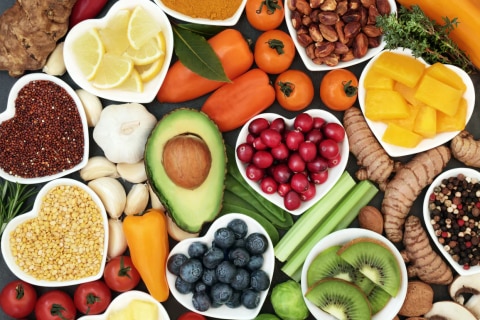
The Rise of Veganism
Veganism was generally unheard of not so long ago, but in recent years its popularity has been growing fast! In 2021 alone, VegNews reported a 5000% increase in Google searches for ”vegan food near me”. Additionally, companies who specialize in plant-based protein alternatives to meat have received billions in investment.1
So what are some of the factors behind this increase in veganism—a lifestyle and philosophy whereby a person does not eat any food derived from animals and who typically does not use other animal products?
Animal Welfare
One of the main reasons many people choose to go vegan is to reduce the suffering of animals.2 According to a global survey conducted by Veggly, a dating app for vegans and vegetarians, 89% of vegans animal welfare was the key reason for going vegan.3
Vegans are not only concerned about the welfare of animals used in food production, but also animal-based products used in cosmetics and clothing. They could also be concerned about ingredients or products that may be tested on animals. With the rise of social media, people are becoming more informed about these issues and choosing to opt for plant-based options and alternatives.
Following a vegan diet was challenging historically, especially when travelling or eating out at restaurants. That has changed with an explosion of vegan products hitting the shelves to meet the needs of more than 600,000 vegans in the UK, a rise from 150,000 in 2006.4
Environmental Awareness
As people become more concerned about climate change, they are likely to review the impacts of their own carbon footprints relative to diet and lifestyle.
In fact, the Vegan Society reports that 64% of vegans stated that environment was a key factor for switching to a vegan diet.3 Their decisions may have been fuelled by reports that up to 15% of greenhouse gas emissions, including from methane, come from the livestock industry.
Some research even suggests that eating a vegan diet may reduce an individual’s carbon footprint from food by as much as 73%.5
A study based on national survey research in the United States published in American Journal of Clinical Nutrition suggests that a serving of beef each day may increase a person’s carbon footprint by as much as 48%.7
Swapping out meat for plant-based options is not the only consideration when assessing environmental impact. Some estimates are that fruit and vegetables that have been transported via air have a worse carbon footprint than meat. So buying locally produced food has also become important.
Agriculture is also responsible for 70% of worldwide freshwater withdrawals. Some plant-based foods are better than others, for example having peas instead of asparagus results in a 48% decrease in water scarcity footprint and swapping out almonds for peanuts reduces the footprint by 30%!7
Health Benefits
Health is another reason why people go vegan. In fact, Veggly reports that more than half of vegans cite health factors as the reason they switched to a vegan diet.3
Veganism as a health choice is not without basis. Research carried out by the American Heart Association suggests that a vegan diet may have beneficial effects on cholesterol levels.8 An additional study published in the European Journal of Clinical Nutrition found that a low-fat, plant-based diet improved both cholesterol and blood sugar levels.9
However, cutting out animal based products does not always equate to a more healthy diet. An unplanned vegan diet can be high in refined foods, sugar and lacking key nutrients. Creating a balanced, healthy vegan diet requires time and planning.
On a positive note, going vegan does provide an opportunity to learn more about nutrition. A healthy vegan diet should include a wide range of plant-based wholefoods such as nuts, fruits, vegetables, pulses, legumes and wholegrains.
Do I need to supplement on a vegan diet?
A vegan diet needs to be well planned, but supplements and fortified foods can help with filling gaps. A focus should be on obtaining adequate amounts of nutrients such as vitamin B12, vitamin D, and iodine. Working with a nutritionist, dietician or relevant healthcare professional can help ensure that your diet meets all your individual requirements.
Disclaimer:
Food supplements should not be used instead of a varied balanced diet and a healthy lifestyle.
References:
- https://www.vegansociety.com/news/media/statistics/worldwide
- https://www.veggly.net/why-go-vegan/
- https://www.bbc.co.uk/news/business-44488051
- https://www.vegansociety.com/sites/default/files/CompassionForAnimalsedited.pdf
- Poore J, Nemecek T. Reducing food's environmental impacts through producers and consumers. Science. 2018 Jun 1;360(6392):987-992.
- https://www.fao.org/ag/AGAinfo/resources/en/publications/tackling_climate_change/index.htm
- Donald Rose, Amelia M Willits-Smith, Martin C Heller. Single-item substitutions can substantially reduce the carbon and water scarcity footprints of US diets. The American Journal of Clinical Nutrition, 2022.
- Wang, F. et al. Effects of Vegetarian Diets on Blood Lipids: A Systematic Review and Meta-Analysis of Randomized Controlled Trials.Journal of the American Heart Association, 2015.
- Mishra, S. et al. Trusted Source. A multicenter randomized controlled trial of a plant-based nutrition program to reduce body weight and cardiovascular risk in the corporate setting: The GEICO study. European Journal of Clinical Nutrition, 2013.
Don't keep all the good info to yourself.
Share this with friends!
Explore more blogs:







